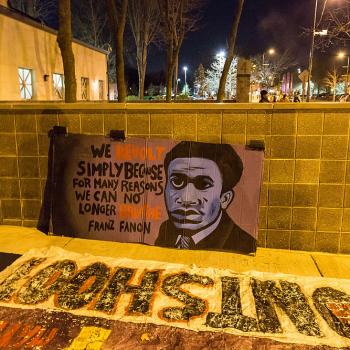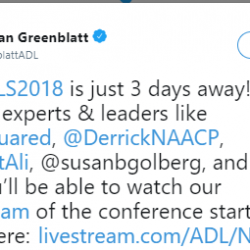
When I visit my grandmother in New-Orleans, I attend a Mosque that belongs to the community of Imam Warrith Deen Muhammad. On Sundays, the brothers cook and make free breakfast for the people in the neighborhood and I usually accompany them. One of the brothers told me he was a former captain in the Nation of Islam and had came to Islam in prison. During the breakfast, I began discussing so many topics such as Islamic Spain, the detrimental impact of usury, Timbuktu..etc. Even though I’m always the youngest person at that Mosque, the older brothers there always show me so much love and treat me with so much respect. After breakfast, we went to a room in the Mosque and began watching film of Ahmed Deedat.
Overtime, I became absolutely fascinated by Ahmed Deedat and wanted to learn as much about him as I could. Ahmed Deedat in debates with prominent Christian scholars from Jimmy Swaggart to Anish Shorrosh to Josh McDowel,gave refutations of the Trinity and critiques of biblical exegesis that confounded Christian scholars and left Muslim audiences in awe.
As his new and fame grew, in debates, Deedat displayed the utmost rhetorical genius, having memorized entire passages in the Bible, his knowledge of Christian scripture surpassed most Christians.I wanted to read all of his work and know about his life. Eventually, I came across an incredibly inspiring documentary titled Great Muslim Lives: Ahmed Deedat that really put his brilliance into perspective for me.
Malcolm X and Ahmed Deedat were among the most influential Muslims in the 20th century. Through their unparalleled charisma, scholarly accolades, and determination, they inspired millions to look into the message of Islam. The lives of Malcolm X and Ahmeed Deedat intersect with one another in profound ways; each of them dealt with common struggles and persevered.

While many people stand in awe of Ahmed Deedat and Malcolm X for their profound accomplishments in Islamic propagation, very rarely do we take the time to analyze the struggles that helped mold them into the exceptional individuals that they became.
The struggles of Ahmed Deedat’s people were studied by Malcolm X in prison, where he would make the following observation: “Excepting the African slave trade, nowhere has history recorded any more unnecessary bestial and ruthless human carnage than the British suppression of non-white Indian people.” The family of Ahmeed Deedat would be severely impacted by this very atrocity Malcolm X indignantly speaks about.
As the British colonized India and South Africa, they would transport Indian workers to South Africa to work as indentured servants. In addition to performing labor roles, Indians would be subjected to a variety of discriminatory legislation, such as the Group Areas Act mandating segregated and inferior housing and schooling.
Deedat’s father came to South Africa as a migrant worker from British-India. Deedat was a prodigious student in this discriminatory educational system, but his father simply could not afford the exuberant schools fees. This is not accidental—under their apartheid government, non-whites were marked in society as only capable of doing labor activities which formal education did not require.
The income made from Deedat’s father working as migrant laborer would not have been enough to afford this education because it was intended this way systematically. Education was something the apartheid government only sought to provide to Europeans. Though excelling in school, Deedat was told by school officials that he could not continue school if his fees were not paid, and thus he was forced to begin working instead.
Deedat’s people had already experienced the brunt of British Colonial policies, and now they were forced to take menial jobs in an Apartheid South African regime—yet the situation would worsen when every day at work Christian Missionaries would come and spread criticisms of Islam.
In the Apartheid South Africa government, Christian proselytization was integrally linked to white supremacy. Islam as well as indigenous African religions were portrayed as inferior pagan and heathen beliefs that had to be wiped out in order to bring such primitive people into the light of superior white Christian civilization.
These highly trained missionaries would do everything from raising doubts about the science of hadith, questioning the accuracy behind the preservation of the Qur’an and other Islamic doctrines. Deedad would be asked challenging questions by Christian missionaries that he would be unable answer. At the time, he only knew the basic rituals and doctrines of his faith and he felt frustrated and humiliated that he was unable to effectively refute the claims of Christian missionaries. Humiliated, Deedat even considered quitting his work, though he needed it to survive financially.
Fortunately, Deedat’s faith would be renewed when he came across a book titled “Proof of the Divine Origin of the Qur’an and the Authenticity of the Hadiths,” which contained accounts of the debates between British Christian missionaries and Indian Islamic scholars. Deedat learned how to respond to some of the common criticisms of Islam by Christian missionaries, and this inspired him to study even more. Deedat began memorizing passages in the Bible and the Qur’an, and studying comparative religion.
Emboldened by his research, Deedat would form a study group to teach others how to respond to the claims of Christian missionaries. Soon the tables reversed, as Deedat would earn a reputation for his witty rebuttals to missionaries. Eventually, missionaries stopped showing up to his area of work all together. It must be realized that Deedat’s actions were about more than just some mere debate between Muslims and Christian.
In his context, South Africa and this spreading of Christianity to Indians was part of a racist logic that sought to “civilize them.” Thus, in Deedat learning to defend his faith was an effective resistance to the white supremacist apartheid regime that sought to devalue the religions of non-white people. Deedat helped to raise the self-esteem of a people who have been subjected colonial domination, something he shares with Malcolm X.
Deedat in a chapter titled “The Gods of Apartheid,” he writes, “The deluded souls among mankind not only imagined God in their own likeness physically, but they also gave him a racial bias and racial characteristics.”
The impact of racializing God as a white man would be continually critiqued by Malcolm X as it provided justification for both the apartheid system of South Africa and Jim Crow system of America.After years of religious propagation by Europeans aimed at eradicating Islam about oppressed Indians in South Africa, the colonist would inadvertently work to produce one of the greatest Muslim scholars and speakers in the form of Ahmed Deedat.
May Allah bless us to learn and be inspired by Ahmed Deedat’s studiousness in studying the deen, his zeal, passion, and commitment to Islam and may we continue his work in the present. We Ask Allah that he may us use to perfect his light as he used Ahmed Deedat, Malcolm X, and so many others. Amen.















